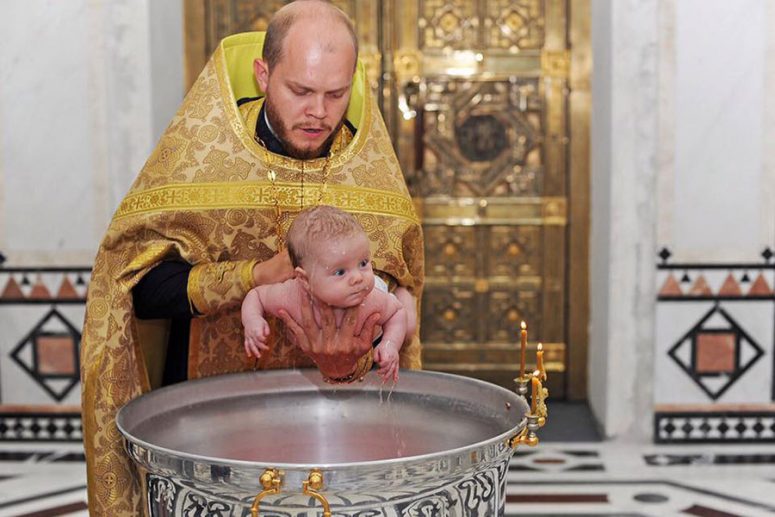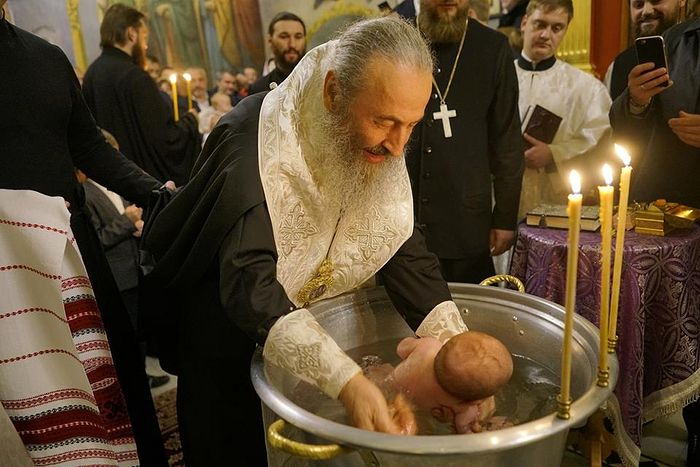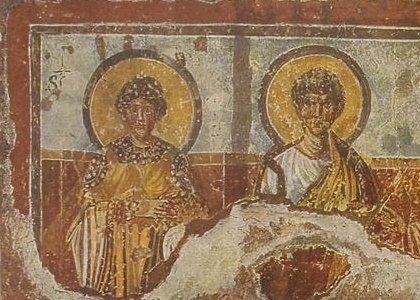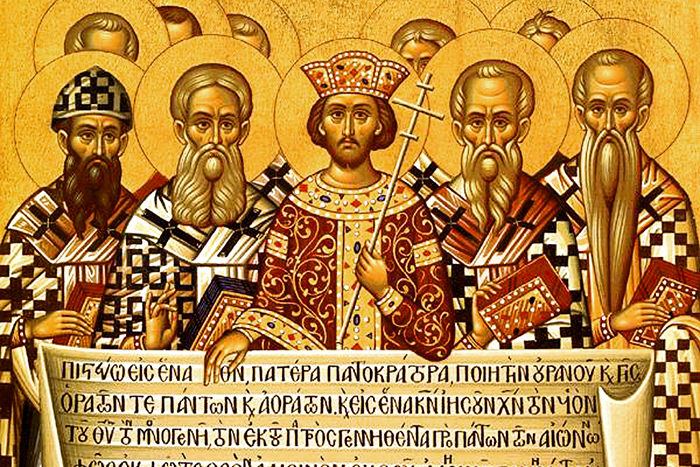
To baptize children or not is a question many Christians ask. The Orthodox are frequently criticized for baptizing children. There are lots of Christian groups that decided not to baptize children. Here is a list of their arguments in favor of the decision:
- Circumcision and baptism aren’t the same. Circumcision was a sign of one’s physical belonging to the Jewish nation, while baptism is a seal of spiritual birth.
- Baptism must necessarily follow one’s repentance and faith in Jesus, which is impossible in the case of infant baptism.
- Many people doubt that the early Church used to baptize children. They say that the New Testament evidence is unclear. There is no direct mention of infant baptism in the Bible.
- We mustn’t baptize children against their will and without their being aware of it. It violates human freedom. One must deliberately choose to be baptized or not.
These and other arguments are serious and reasonable enough. Why do the Orthodox, along with Catholics, Oriental Orthodox, Anglicans, Lutherans, Presbyterians, and many other Christian groups still practice infant baptism? What can we back our practice up with?
- We believe that baptism is a Christian equivalent of circumcision; circumcision, in turn, was a harbinger of Christian baptism. Given that circumcision was performed on boys to make them part of the nation of God – the nation of the Covenant – at the age when they couldn’t realize it, Christian kids should also have the privilege and the obligation to become part of the Church, the Body of Christ. Having received the grace of Baptism, Christian children join the New Covenant with the Father through the Blood of Jesus Christ, the Lamb of God. The Lord came on earth to facilitate our unity with the Father. If children became part of the nation of Israel in the Old Testament and, by virtue of that, were entitled to benefits; why should children’s status get worse, not better, after the coming of Christ?
- Baptism is so important and necessary for all people including children that the Church has always urged the faithful to have their children baptized in the first couple of weeks after their birth – or right away in cases of deadly danger. There are clear references to infant baptism since as early as the 2nd century. Hence, we cannot deny that cases of infant baptism were known even in the Apostolic times. Irenaeus, a 2nd-century saint, mentions infant baptism as a completely typical thing. A local Council of Carthage, led by Saint Cyprian (3rd century) also confirmed the legitimacy of infant baptism and pointed out that age restrictions were not set in stone. Likewise, Origen claimed that “the Church has a tradition to baptize even children, passed on by the Apostles.” (Origen, Commentary on Romans 5: 9). First mentions of infant baptisms never incited any dissent in the early Church, which can be taken to mean that it was a time-honored practice, rather than an innovation.

III. The doctrine of original sin plays an important part in the decision of Orthodox Christians to baptize their children. According to the Church, all people are born flawed because their nature was befouled by the Fall of Adam and Eve, our ancestors. Children are innocent but they carry original sin nevertheless. That is why they need to be born again, too. They have to be made holy by God’s grace and become God’s children. Their nature has to be cured. Orthodox Christians’ children are full members of the Church. They are baptized, chrismated, and take communion. The Holy Spirit intercedes for these children with groanings which cannot be uttered (cf. Romans 8: 26).
- If a Gentile converted to Judaism in the Old Testament, all male members of his household had to be circumcised. Likewise, we read in the New Testament that all members of a convert’s household were baptized, which means that children were baptized, too (e. g., Lydia of Thyatire, Crispus the chief ruler of the synagogue, and the house of Stephen).
- Apostle Peter called everyone to repent and get baptized in his sermon on Pentecost, pointing out that the promise of the Holy Spirit belongs to believers and their children (See Acts 2: 38-39). The Gospel also contains the Lord’s own words, Then were there brought unto him little children, that he should put his hands on them, and pray: and the disciples rebuked them. But Jesus said, Suffer little children, and forbid them not, to come unto me: for of such is the kingdom of heaven (Matthew 19: 13-14). Christians who don’t allow their children to come to Christ and forbid them to become members of God’s people, act like those disciples whom the Lord rebuked.
This is why we have our children baptized. Our children are adopted by God and revived by the water and the Spirit. Many of them lead a life of piety and partake of the Holy Sacrament since their earliest days, which is undoubtedly going to help them in the future. With that said, we have to remember that the Church lets children to be baptized under the condition that they shall be brought up in the faith and piety by their faithful parents and godparents, so that they would grow unto a perfect man, unto the measure of the stature of the fullness of Christ (Ephesians 4: 13).





I have a different understanding of the Orthodox position on “original sin” — that we believe instead in “ancestral sin” (that infants are born innocent, unstained by original sin, yet having the ancestral tendency to sin, and which “stains” them once they willingly sin). This seems an important difference, especially in regard to free will and the choices of the Theotokos.
Thank you for your comment. If I am not mistaken, The doctrine of the original sin was accepted by the Orthodox Church on Carthage council, which was confirmed once again on Council in Trullo (691). I have to check it up. Yes, the children born innocent, because they have no personal sins. However, it is the doctrine of the Orthodox Church that the children born with “original sin”, because everybody born with it ad it is our heritage from Adam and Eve who have fallen and contaminated the human nature. That is why we all and the children too do need to be baptized. To be in the state of the original sin does not mean to be responsable for this. If I am not mistaken, the original sin in Orthodoxy is inherited stained and corrupted nature that cause us difficulties in life and push us to sin. This corrupted nature is healed during the baptism, however it is a long process of sanctification and partaking the Eucharist that leads us toward salvation in Christ.
Please forgive me, if I am wrong.